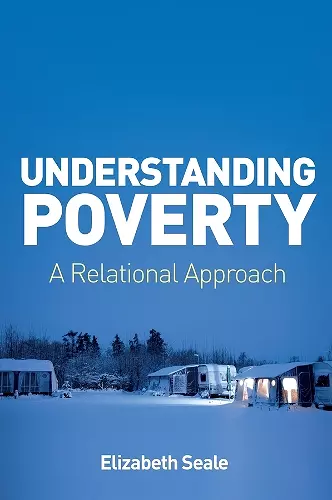Understanding Poverty
A Relational Approach
Format:Paperback
Publisher:John Wiley and Sons Ltd
Published:25th Aug '23
Should be back in stock very soon

People in poverty suffer daily under misconceptions about economic hardship and its causes. Providing the most comprehensive consideration to date of poverty in the United States, Elizabeth Seale tackles how we think about issues of culture, behavior, and poverty, cutting straight to the heart of debates about social class. The book addresses tough questions, including how being poor affects individual behavior, and how we can make sense of that in a larger social and political context. The central premise is that to understand the behavior and lives of people in poverty, one must consider their relational context, especially relations of vulnerability and the human need for dignity. Poverty is a social problem we should address as a society by changing social relations that, as a matter of course, cause unnecessary and immense suffering. To do so, we must directly confront our lack of regard for people in poverty by recognizing that they are in fact worthy of an effort to induce major social change.
This critical introduction to poverty will be an important read for undergraduate students and above in sociology wanting to learn more about the growing social problems of poverty, inequality, and stratification.
“Too often those in poverty encounter blame and disrespect. In this compelling and original book, Seale shifts attention to where it belongs: the social relationships of unequal power that produce and sustain poverty’s ill effects. Beautifully written and long overdue!”
Judith Levine, Temple University College of Liberal Arts
“Elizabeth Seale has gifted us with a wide-ranging introduction to poverty research and policy. Most importantly, she has reinterpreted past research through a thoroughly relational lens. She convincingly demonstrates that it is a mistake to think of poverty as the result of individuals making bad choices or groups having bad cultures or even societies having harmful structures. The central sociological insight that ties this book together is that poverty is produced in relationships that channel action, generate vulnerabilities, and in the end deny dignity.”
Donald Tomaskovic-Devey, University of Massachusetts, Amherst
ISBN: 9781509553334
Dimensions: 229mm x 152mm x 20mm
Weight: 408g
229 pages